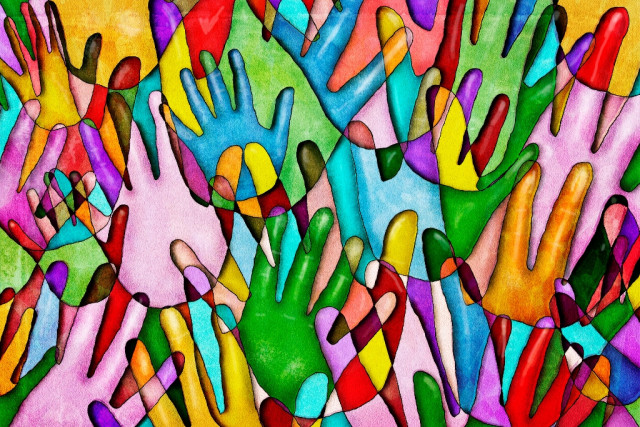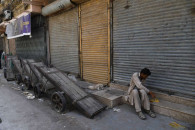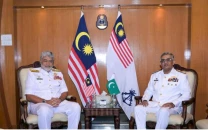For greater equality: Spotlighting social movements’ role in shaking up the status quo
Speakers suggest ways to integrate the youth, ethnic groups.

For greater equality - spotlighting social movements’ role in shaking up the status quo. PHOTO: FILE
Social and political activists on Monday underscored the role of the youth and social median as a powerful agent in bringing change in society.
They discussed the emergence of various social movements in the country and their contribution to change at a two-day conference.
The conference on “Contemporary Social Movements and Social Order in Pakistan,” is being organised by the Institute of Strategic Studies, Islamabad (ISSI) in collaboration with the Hanns Seidel Foundation.
Planning and Development Minister Ahsan Iqbal highlighted the fact that social media had provided powerful tools for social mobilisation and technology would shape the future of societies. He said since the youth comprised a majority of the population, Pakistan could not be indifferent to social change.
Pakistan is considered a least developed country when it comes to social indicators, he stated. “The main challenge is to make sure that society is inclusive.”

Centre for Civic Education Executive Director Zafarullah Khan said 56.4% of the population is under the age of 24, but a combined literacy rate of 34% depicts a limited youth capital. “Pakistan must harness its youth potential by providing them a civic and democratic education,” he stressed.
Dr Zeba Sathar, speaking on demographic and social transformation, said the rapid growth in population to 190 million has given rise to a host of social issues. “Pakistan should make policies to accommodate additional numbers.” She suggested the government create new jobs opportunities to absorb the projected workforce of 200 million which would be available in 2050.
Foundation for Fundamental Human Rights Director Shahzad Akbar said the lawyers’ movement against the dictatorial regime of Gen. Musharraf in which civil society had also participated was a positive indicator for change. New precedents have been witnessed through judicial activism and the judiciary is more focused on the protection of human rights through suo motu action, he added.
According to Saeed Shafqat from Centre for Public Policy and Governance, Forman Christian College, few political movements lead to democratisation and reform of societies and states. “Despite all the signs of a political movement the 2007 lawyers’ protest could not become a political movement.”
Dr Sarfraz Khan was of the view that Pakhtun ethno-nationalist politics had its roots in the pre-partition mobilisation by the Khudai Khidmatgar movement led by Khan Abdul Ghaffar Khan. He said that the post-independence period witnessed calls for either an independent Pakhtunistan or greater autonomy for the Pakhtun region within a federal structure.
He said while the rise of the Taliban in the tribal belt and settled districts of Khyber-Pakhtunkhwa has been labelled by some scholars as a violent expression of Pakhtun-ethno national politics, their manifestation is a product of the state’s attempts to subdue Pakhtun nationalism. Supporting an Islamist movement in Afghanistan in the wake of the Soviet invasion led to the current expression of Islamic ideology, he added.
Khadim Hussain said the main reasons behind the failure of ethno-national movements were internal and structural in nature and thus the people’s aspirations remain unfulfilled, while referring to the movement for a Seraiki province.
Senator Hasil Bizenjo concluded the session, stating that the country’s survival was contingent upon recognising ethnic diversity which should be considered as a natural and essential component of national politics.
We should stop harping about conspiracy theories according to which the US and other countries fan conflicts to destabilise the country, he stated. “Our security establishment must stop creating the impression that India is out to disintegrate Pakistan and specifically Balochistan.” He stressed that the country should normalise its relations with India and other neighbours.
“Pakistan should avoid overstretching itself in regional or international conflicts and instead focus on internal conflicts, he added.”
Dr Aasim Sajjad Akhtar from the National Institute of Pakistan Studies, at the Quaid-i-Azam University, argued that there is a need to think critically about the persistence of insurgencies in rural areas, particularly in Balochistan and Khyber-Pakhtunkhwa. He said that the peasantry may have been transformed by dramatic social changes over the past few decades but the state continues to treat working people in rural areas with disdain, and in the case of the Baloch, uses unmitigated force to quell their political movements.
He was of the view that the rural areas continue to be a hotbed of militancy, both of the secular and religious varieties.
Dr Rasul Bakhsh Rais said a new middle class was emerging in the villages of Punjab, mainly due to migration and urbanisation, because of which people were receptive to social and political developments.
Kristof Duwaerts from the Hanns Seidel Foundation highlighted the importance of education in bringing about awareness in society to realise its potential.
Published in The Express Tribune, February 11th, 2014.



















COMMENTS
Comments are moderated and generally will be posted if they are on-topic and not abusive.
For more information, please see our Comments FAQ